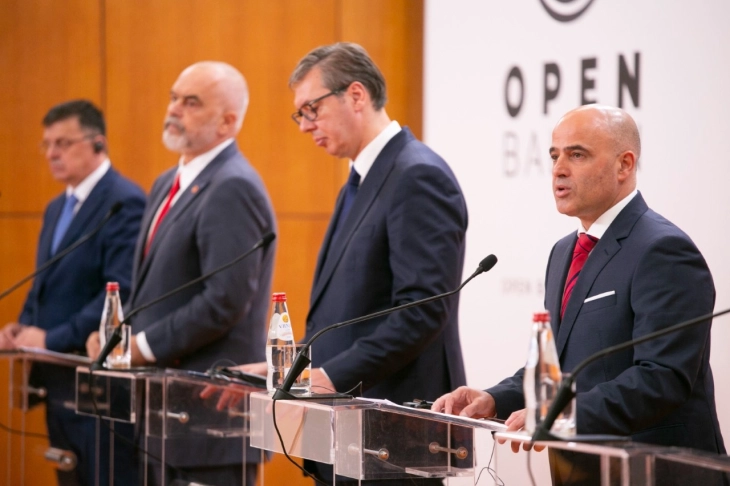Kovachevski: Cooperation for electricity in sufficient quantities and at optimal prices

Belgrade, 2 September 2022 (MIA) – Cooperation is necessary amid the current energy crisis in order to ensure electricity in sufficient quantities and at optimal prices both for citizens and the economy, said Prime Minister Dimitar Kovachevski in Belgrade on Friday.
“In order to ensure electricity at a price that citizens can pay, countries are providing subsidies. Only last week we transferred EUR 50 million to Power Plants of North Macedonia (ESM) so that we secure 80-percent subsidized electricity,” PM Kovachevski when quizzed by MIA when they are planning to connect Open Balkan from an energy standpoint and whether the EU has provided any assistance.
As all countries, said Kovachevski, North Macedonia, Serbia, Albania, Montenegro and Bosnia and Herzegovina are facing electricity shortages and very high prices of raw materials.
“When you look at the prices of electricity, gas, crude oil, this means quantities are not sufficient and all citizens should know this, because there are politicians who want to give these shortages a political dimension, which is wrong. The gas is not available because of the war in Ukraine, quantities of crude oil are not sufficient because it is used more because of the gas shortage, along with the lack of wind in the northern seas, the drought in Europe and the impossibility to cool down nuclear plants in France and Germany, where most of the reactors are shut down. Therefore, high prices reduce demand,” noted Kovachevski.
He said ESM has been tasked with activating all production capacities, along with the hydro-potential, which has been reduced due to the long dry periods and drop of the reservoir’s capacities by about 50 percent.
“Putting all power plants in operation requires energy resources at higher imported prices, along with a rise of transport costs. Nevertheless, ESM must increase its production by 25 percent compared to last year and it is doing this,” said Kovachevski.







